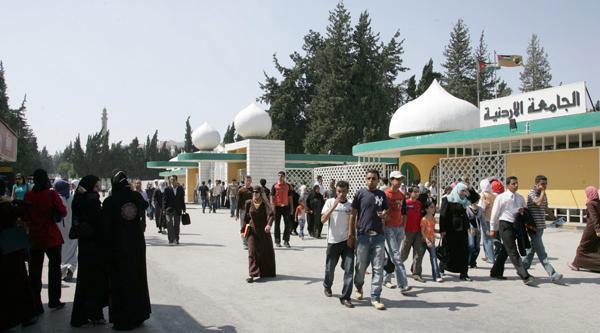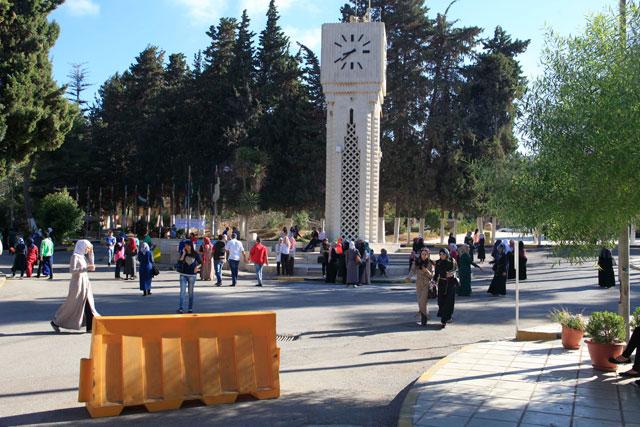You are here
Students express concerns amid growing suppression of activism on campus
By Sawsan Tabazah - Mar 11,2018 - Last updated at Mar 11,2018

Students express concerns towards growing suppression of activism on campus (File photo)
AMMAN — Suspensions and detentions of students who participate in activities to defend their rights or express their ideas has led to a reluctance of university students to take part in student activism, and affects their participation in political life after graduation, former and present activists said during a panel at University of Jordan (UJ) two weeks ago.
The Hashemite University (HU) in 2016 issued a decision to suspend student Ibraheem Obeidat for organising events on and off campus without requesting the administration’s permission and speaking on behalf of the student union without being an official member of it.
The deanship of HU suspended Obeidat, a fourth-year electrical engineering student, for four semesters, despite a series of protests held by his peers against the decision.
Also in 2016, hundreds of students from Balqa Applied University’s Polytechnic Engineering College protested against the university’s administration's decision to suspend two students for expressing their views on social media websites.
Ahmad Ryad, an alum from Jordan University of Science and Technology and a former activist considered UJ students’ open strike the present day role model of “successful” student activism.
The UJ students’ sit-in, which lasted for about a month in 2016, demanded the reversal of a decision to raise tuition fees for the parallel and post-graduate programmes between 100 and 180 per cent
The panellists expressed their concerns over greater restrictions on student activism following a decision to grant public universities’ guards law enforcement status under 2018 amendments to the public universities law.
The amendments are still being deliberated by the two Houses of Parliament.
Laith Alawneh, a medical student, said granting law enforcement status to security guards two years ahead of UJ’s open strike and called for students to organise their efforts to stop it.
Musa Shteiwi, president of the Strategic Studies Centre at The University of Jordan told the Jordan Times in an interview over the phone that activities inside campuses must be organised in coordination with the deanship of students’ affairs and must align with the university’s rules, with punishments issued against violators of laws.
Shteiwi noted that granting university guards law enforcement status aims at controlling campus violence, noting that the university police will be able to take action at the right time.
Alaa Hejah, a student and member of the liberal Tajdeed bloc at UJ, said that the fear of temporal or permanent suspension from the university, detentions or investigations for taking part in protests has led to a decrease in participation in student led activities.
Thaer Frahat, a former president of UJ’s students’ union and a member of the Nashama bloc, considered students’ political role restricted by various factors, including subordination to political parties.
Many blocs that are funded and supported by political parties such as Islamists and liberals turn youth to followers rather than independent individuals who make decisions on their own, Frahat noted.
The activists concluded with a call to join efforts between various blocs and to put aside differences in order to raise awareness of the importance of activism inside universities, as students will become the politicians and decision makers of the future.
Related Articles
AMMAN — As the Ministry of Higher Education examines a plan to give security personnel at universities law enforcement status, university st
AMMAN — Hashemite University students on Tuesday started an open-ended protest on campus over the suspension of a fourth-year student in lat
AMMAN — The Hashemite University (HU) on Monday suspended a fourth-year student for four academic semesters over his activities on campus ov


















